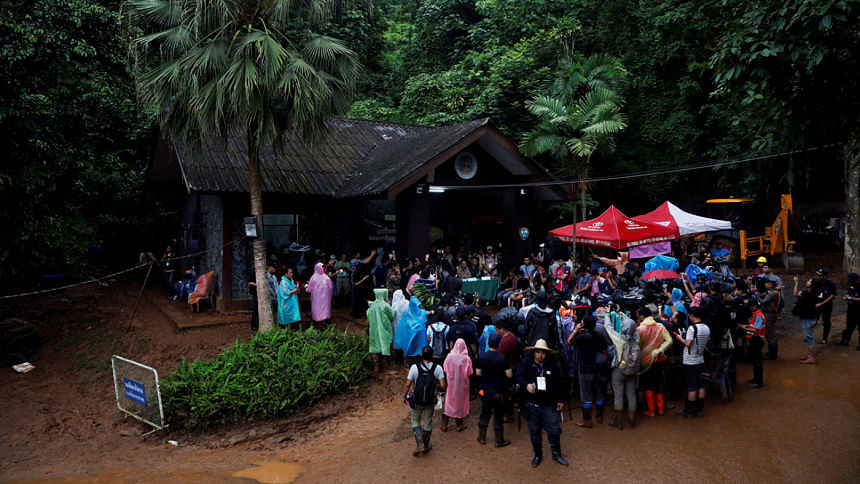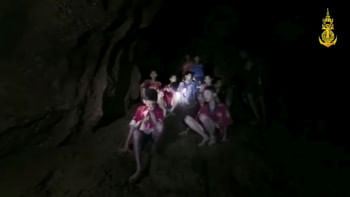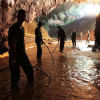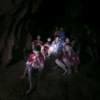Thailand cave saga exposes the challenge of fake news

With news on the mission to rescue a dozen boys and their football coach in a cave in northern Thailand grabbing the nation's attention, fake news, rumours and dramas are also poisoning the Internet, further burdening the people working in the area.
An ethics member of the Thai Journalists Association, Banyong Suwanpong, said the situation would prove media's professionalism while also advising people to source their information from reliable news outlets rather than easy-access channels.
On Sunday, there was false news that the 13 had already been found. And because more and more people were believing it, Chiang Rai Governor Narongsak Osotthanakorn, the head of the rescue operation, had to find time to make it clear that if it were true he would be directly informing reporters and everyone at the scene.
The operation to save the footballers has been hogging media and public attention for the past nine days. But as the rescue efforts drag on, amid complications due to the difficulty of the operation, some people are floating alternative theories that there must be more to it than meets the eye.
Facebook pages that have become a popular alternative source of news and a forum for people to exchange their thoughts and ideas in recent years are playing a major role in leading and shaping the public perception.
One of the pages floated a theory, linking their disappearance to the fact that the area around Tham Luang was a red zone, notorious for being a route to dispatch illegal drugs. It suggested that the missing boys might have witnessed the crime and been kidnapped.
Others have posted unconfirmed rumours that the boys had already been found but for some reason the authorities wanted to keep the public in the dark.
Some traditional and mainstream media, meanwhile, are also in competition to get news and reports, resulting in some false reports. For instance, a TV news channel reported that some volunteers had heard a knock and the sound of scratching on the cave wall when they had knocked and called out to the missing boys. But the officials rejected the story.
Other authorities such as the Narcotics Control Board refuted the false reports surrounding the incident. Some news consumers, however, remain convinced by the alternative theories. These developments have caused much confusion about the mission among the public and added to the burden of those engaged in the rescue mission to have to clarify matters.
Another incident involved Facebook page E Chan, which has grown into a popular online news agency since last year when it covered the news of the murder and dismemberment of a karaoke bargirl.
The page, with more than 6 millions likes, is popular for its strong and insightful reports on crime stories in blunt language, as it is beyond the regulation of official media watchdogs. But it came under fire yesterday.
E Chan allegedly deliberately stirred a drama about the rescue mission. The page cried foul that a group of volunteers had been barred from going into the cave when they could have done much to help. But later it was exposed that the news outlet had asked the volunteers to take photos inside the cave but was disappointed when the attempt failed.
Veteran journalist Banyong yesterday said that this is a crucial test of media's professionalism. The most important thing about news reports is they must be verifiable, he said.
"Verifying news and sources is something all reporters know should be done but some of us just choose to forsake it," he said. "Verification of news makes it reliable and it will distinguish the professional media from the amateurs emerging with the help of technology." However, because of fierce competition, some reporters might try to go beyond the official news, the veteran said. He stressed that news reports must be informative and useful to consumers. The authorities have done well and enough to give information about the progress of the mission and it should be sufficient for reporters at the scene, he added.
Copyright: The Nation/ Asia News Network

 For all latest news, follow The Daily Star's Google News channel.
For all latest news, follow The Daily Star's Google News channel. 








Comments